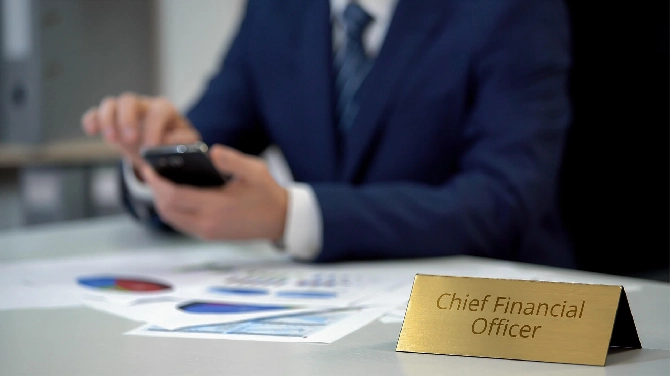Carbon marketplace urges businesses to consider carbon credits to offset carbon emissions now or to bank them while market prices are low
In a challenging time for business, carbon marketplace experts JustCarbon urge SMEs to make a savvy business decision and consider carbon offsetting now while prices are considered low, and to appeal to consumers that are looking for eco-conscious businesses leading the way.
John Auckland, the co-founder of JustCarbon, a platform revolutionising the way in which carbon offsetting projects are funded by creating a simple marketplace for trading in high-quality carbon removal assets, outlines why businesses should not procrastinate and act now.
“In talking to business owners, we have found that the perception can be that big business contributes more to emissions,” John Auckland says, “however the UK’s 6 million small businesses employ 60% of the UK workforce and research has shown that between 43%-53% of UK business emissions come from businesses with fewer than 249 employees, which is a massive 36% of total UK emissions” (1).
In a survey of businesses from the SME climate hub two-thirds of small business owners were worried they don’t have the right skills and knowledge to tackle the climate crisis (2).
But with the current rapid rise in business expenses and increasing challenges to SMEs from multiple factors including the consequences of the coronavirus pandemic and inflation they have found that some businesses are wondering why they should make it a priority.
One of the most vital reasons is that the price of offsetting your unavoidable emissions with carbon credits is only going to go up. “Currently prices are approx. $25 dollars to offset a tonne of carbon with our token, the JCR, but it is predicted by the BNEF to rise in future to as much as $120 (3). It would be wise to act now and buy to offset your current and future emissions while the price is lower, and if you end up buying more than you need these can be sold back,” John says. For an example of how affordable offsetting is at present, a coffee roaster business (roasting 15 tonnes a year) would need to offset 31 tonnes per year (1) and at current prices this would be £616 a year.
Secondly, it is important to maintain competitive advantage and keep up with the paradigm shift towards increasingly eco-conscious consumers. John says, “In future it will become the norm for customers to look for businesses leading the way in this field and avoid those with bad practices(4). Businesses can advertise and build this into their business model. More businesses are choosing to give the option to add carbon offsetting as part of their product or services and customers have been shown to be keen to take this up when given the option.”
JustCarbon are involved in offsetting for innovative emerging digital business which is going to become more and more relevant as these markets expand. They have recently helped to mitigate the carbon impact of low NFT artwork by New Zealand All Black Sir John Kirwan called ‘The Try’ through their partnership with NFT Design Works (5).
Finally, it is an advantage to get ahead of regulations which are in the pipeline. Since 2019, quoted companies must report on their global energy use and large businesses must disclose their UK annual energy use and greenhouse gas emissions (6). “For now, it is voluntary for small businesses but in the move towards net zero it is likely regulations will be extended in future. However, even at present large corporations are increasingly looking down their supply line for this information and so it will be vital for any business trading with larger companies in the future. Banks are also beginning to look across their lending portfolios because of carbon regulations and accounting,” John says.
“We are aiming to offer a clear solution to SMEs to buy carbon credits to offset their carbon emissions. We are leading the market in a number of ways – firstly by being accessible and removing the middlemen and friction from the process, allowing companies and individuals a simple way to offset their carbon. Next by being a byword for quality and trust, by ensuring the quality of every project or carbon credit transferred to our platform. Finally, and vitally, the current market is not set up to help the project developers – JustCarbon wants to contribute to high-quality carbon removal projects by bringing greater funding and investment.”
JustCarbon outline the step-by-step process of how to go about this practically:
- Use a carbon calculator to calculate your emissions
There are a number of excellent calculators online – see the ones on the Carbon Trust or through JustCarbon resources which will guide you through this. Calculate your scope 1 (fuel consumption) and scope 2 emissions (energy consumption – electricity and gas). These two are the priority – scope 3 emission calculations are beyond the scope of this guide but are related to your supply chain and if you decide to calculate this you may need assistance from another company as it can be more complicated than the simple calculators above (see here for more).
- Find activities to reduce emissions
By starting the process of measuring your emissions it can prompt you to start changing and can give insight into the areas where you can start to make an impact and ultimately save money. The UK Business climate hub has some great advice (see here)
- Buy carbon credits to offset
With JustCarbon developers of high-quality carbon removal projects can list their assets (tonnes of carbon removed) on the JustCarbon platform. These assets are represented by our JustCarbon Removal token ─ the JCR ─ which holders can ‘retire’ or ‘burn’ to offset their unavoidable carbon emissions. Essentially, by buying either a carbon credit or JCR, a business is providing funding to a carbon reduction or removal project. The JustCarbon website goes through this process with you. So, if a business could not help but emit seven tonnes of carbon, for example, they could choose to retire/burn seven carbon credits/JCRs in order to become “carbon neutral” or more than seven to become “carbon negative”.
Listen to the FSB Podcast from the 18th May to find out more.
To find out more about all these topics and JustCarbon visit: https://justcarbon.gitbook.io/docs/english/introducing-justcarbon
Founded in 2004, AGT Bus- & Eventlogistik GmbH – as part of the group of companies “Hamburg-CityTours” – is one of the nationwide leading service providers in passenger transportation management and implements orders both in Germany and throughout Europe with the highest customer satisfaction. As a descendant of “Rainbow Tours” it is the experience of many years, which constitutes the unique service of the enterprise. AGT employs around 90 qualified employees at its Hamburg headquarters, which is why the company has access to extensive know-how and can always offer optimal industry and process-specific solutions. AGT’s service portfolio includes services for both business customers (Business Area) and private customers (Customer Area).







